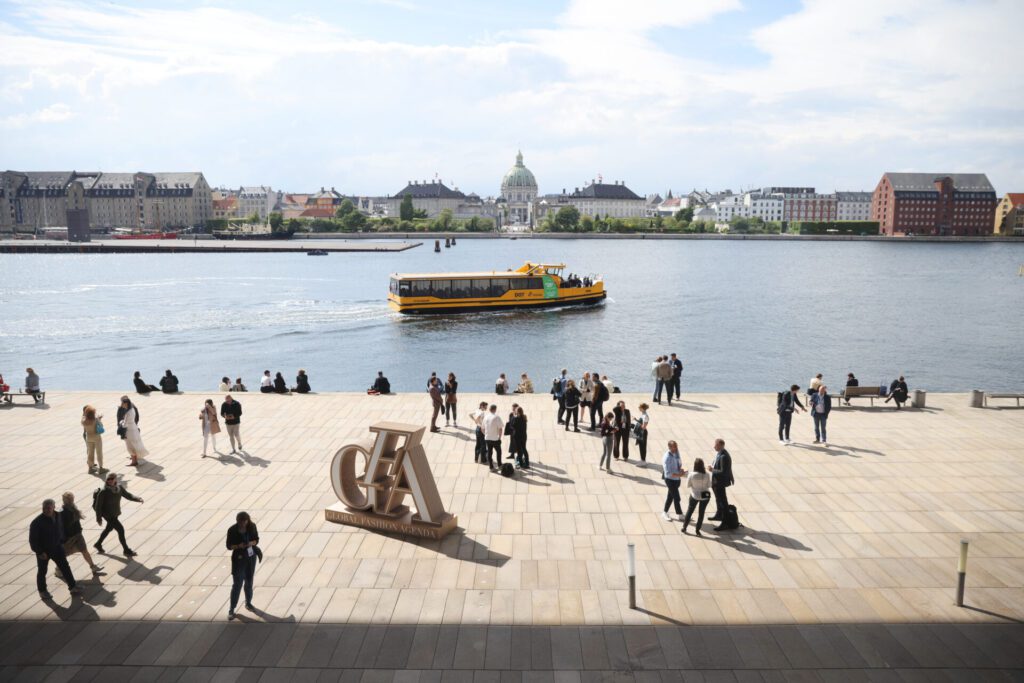Illustrious brands and organisations reveal new sustainability actions at Global Fashion Summit: Copenhagen Edition

Illustrious brands and organisations reveal new sustainability actions at Global Fashion Summit: Copenhagen Edition

Thursday 9 June: Hosted in the grand setting of the Royal Opera House, Copenhagen, on 7-8 June, the event convened over 900 leaders from brands, retailers, NGOs, policy, manufacturers, and innovators to drive urgent action. The Summit was presented by Global Fashion Agenda (GFA), the non-profit organisation that is accelerating the transition to a net positive fashion industry, under the patronage of HRH The Crown Princess of Denmark.
The Summit was centred around the theme ‘Alliances for a New Era’. Under the theme, the event brought together leaders to foster pre-competitive collaboration within the fashion industry and examined atypical cross-industry alliances, in a bid to accelerate the transition to a net positive industry.
The programme content was the boldest yet and focused on challenging topics and honest discussions with more diverse voices. The programme covered topics from ‘What even is a sustainable brand?’ to ‘subverting fashion’s historical exclusion’, to ‘supercharged storytelling’ to the ‘metaverse impact and decentralised futures’.
Attendees heard from over 100 speakers including HRH The Crown Princess of Denmark; Marie-Claire Daveu, Chief Sustainability & institutional Affairs Officer, Kering ; Leo Rongone, CEO, Bottega Veneta; Thierry Andretta, CEO, Mulberry; Lily Cole, Author & Podcaster on climate solutions and Advisor for UNECE; Nicolaj Reffstrup, Founder, GANNI; Maximillian Bittner, CEO, Vestiaire Collective; Paul Polmon, Co-Author, Net Positive; Bobby Kolade, Fashion Designer; Halide Alagöz, Chief Product Officer, Ralph Lauren Corporation; Aditi Mayer, Sustainable fashion blogger and labor rights activist; Lindita Xhaferi Salihu, Fashion Charter Lead, UNFCCC; and many more. View all speakers.
Federica Marchionni, CEO, Global Fashion Agenda, says: “Fashion is about change, you can let it happen, or you can make it happen. The Summit sparked many very promising alliances and we saw key stakeholders announce a flood of encouraging sustainability improvements. There has been so much knowledge shared and attendees now need to take what they have learned and share it with others, and – most importantly – implement it, diligently.”
Leading brands, retailers and organisations unveiled new alliances and initiatives:
Multiple companies chose to announce their latest sustainability measures at the landmark event.
Highlights include:
This year’s Summit also presented an Innovation Forum, enabling small and large companies to meet with 24 sustainable solution providers – equipping them with the tools to turn words into meaningful actions. More than 300 facilitated business meetings between fashion companies and sustainable solution providers took place during the two days of the Summit.
Going beyond the Royal Opera House, the Summit facilitated connections through stimulating side events. We kicked off the Summit activities with a GFA Monitor Masterclass, which explored the underlying insights behind our latest report. We also held a Welcome Reception at Villa Copenhagen, co-hosted by our Strategic Partner, Ralph Lauren. The Summit Dinner, co-hosted by Henkel, took place at Hotel Skt. Petri, and provided unique socialising and networking opportunities for attendees. Summit activities were rounded off with a Celebration Dinner at Langelinie Pavillonen, which was co-hosted by Kering.
Global Fashion Agenda would like to extend its thanks to all partners, speakers, sponsors, volunteers, attendees, and contributors involved in the Summit. This Summit would not have been possible without you. Thank you for your passion and commitment that made this Summit truly unforgettable.
Thank you to our volunteers who provided invaluable support throughout the Summit, to H&M Group who provided 100% recycled cotton t-shirts for all of the volunteers and backstage crew and to the brands that provided pieces for the volunteers including By Malene Birger; True Gum; Humdakin; Retap; The Organic Company; Poppy Willow Studio; Dear Denier; moshi moshi mind; Underprotection; and Flying Tiger.
For more information about the Summit at globalfashionsummit.com. Learn more about Global Fashion Agenda at globalfashionagenda.org.
Access to all media materials and images is available via the Global Fashion Summit media bank.